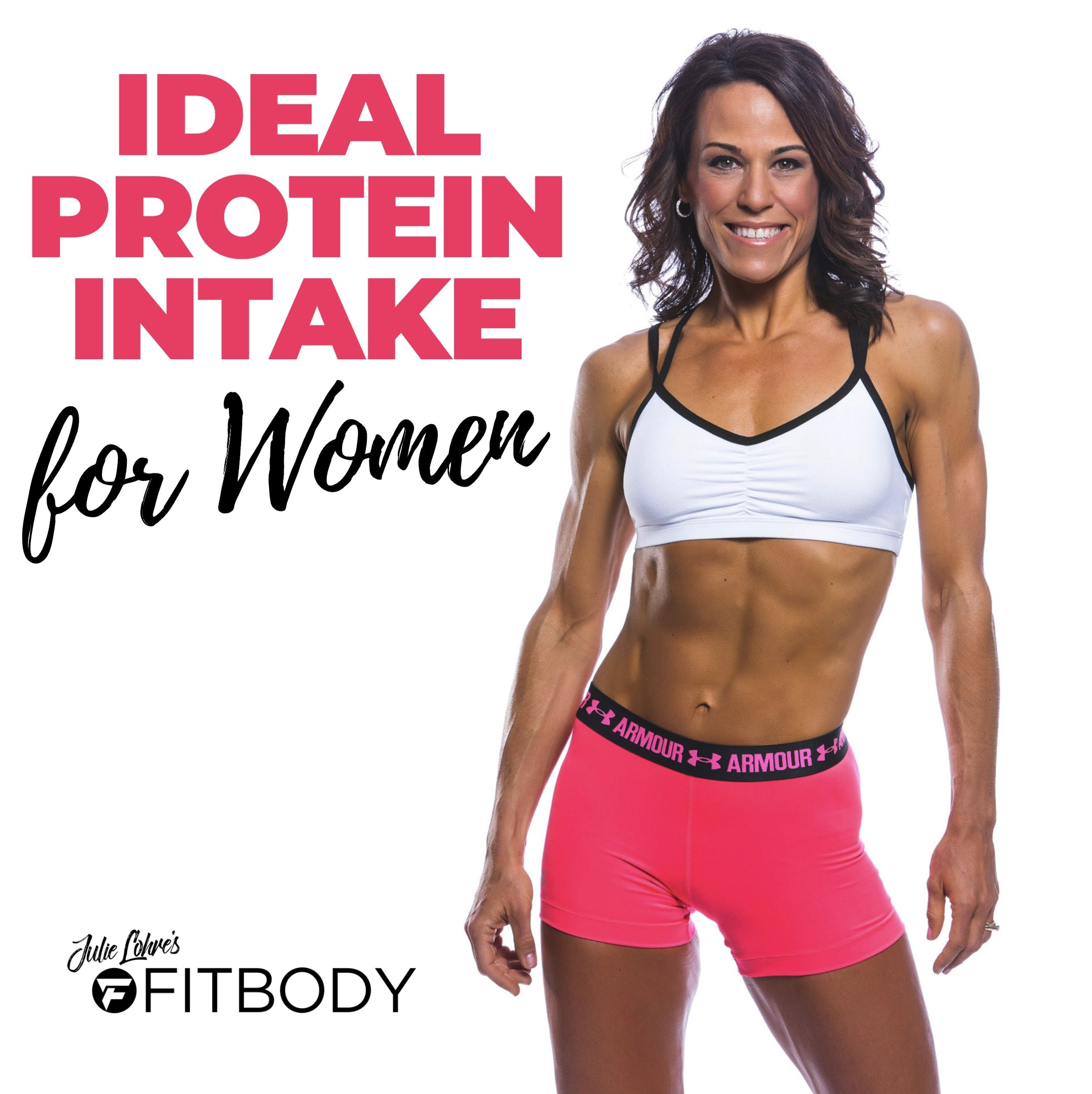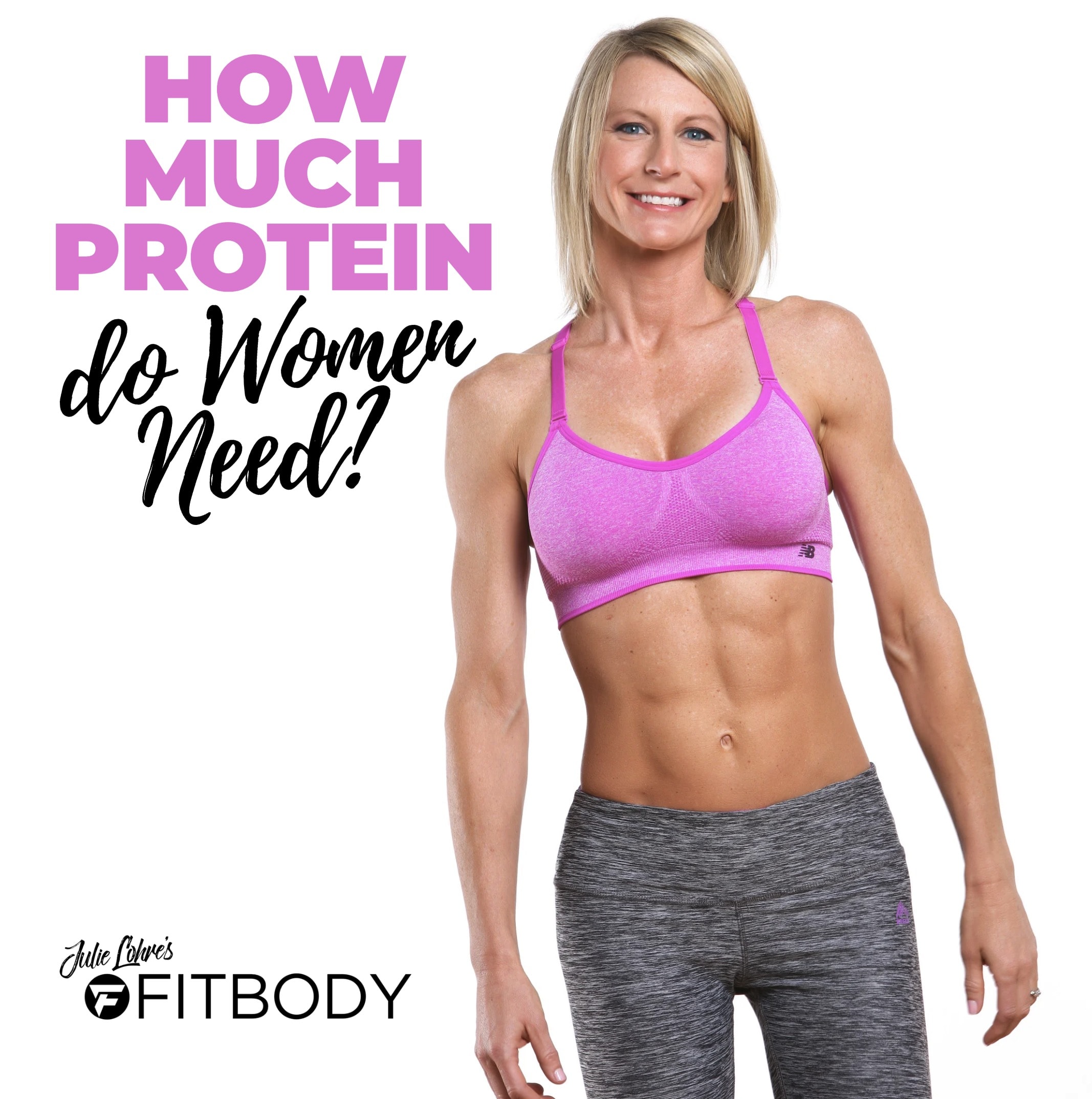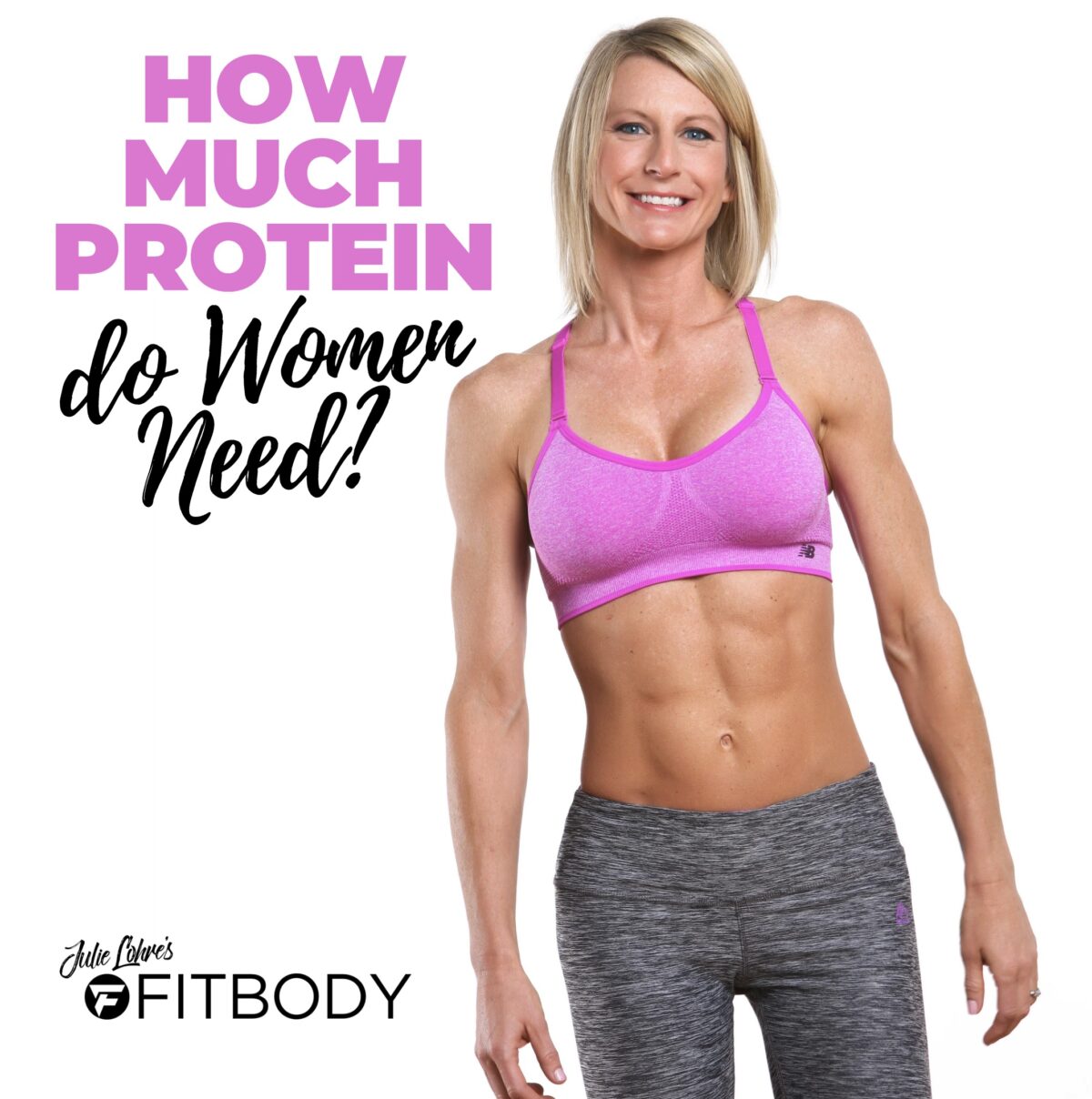Understanding Protein Needs for Women : Why Women Need Increase Their Protein Intake for Weight Loss & Muscle Building

We all know that protein is a vital macronutrient that plays a crucial role in every woman’s health and fitness journey. Whether the goal is muscle building, fat loss, or overall well-being, understanding protein needs is essential. This article delves into the importance of protein for women, detailing how much is needed for various health goals and the science behind these recommendations.
Why Do Women Need to Prioritize Protein Intake in their 40’s?
Over the last 15 years, I have worked with women as a virtual fitness and nutrition coach and one theme comes up again and again. Women everywhere are losing muscle at an alarming rate as they hit their 40’s. Constructing and preserving muscle is crucial not only for athletic performance but also for overall health and longevity. A decrease in muscle mass is linked to a higher risk of metabolic syndrome and cardiovascular diseases. Additionally, there’s an inverse relationship between muscle mass and mortality from any cause, indicating that more muscle can contribute to a longer and better life. If you want to get the most out of life, continuing to be active and healthy well into your 60’s & beyond, it is critical that you prioritize maintaining and adding lean muscle.
Engaging in resistance training is a fundamental part of muscle development. However, that’s only a portion of the necessary strategy. For the effective building of skeletal muscle, consuming sufficient protein is vital. Protein provides the essential amino acids your body requires and stimulates an increase in muscle protein synthesis – the process of muscle tissue repair and the creation of new muscle fibers.
Impact of Adequate Protein Intake for Women
Muscle Health and Aging: As women age, they naturally lose muscle mass and strength, a condition known as sarcopenia. This loss can be accelerated by hormonal changes during menopause. Adequate protein intake is crucial for slowing down this process. Hitting the proper protein needs for women provides the amino acids necessary for muscle repair and growth. This is particularly important after exercise, as physical activity can break down muscle fibers, which then need to rebuild stronger.
Metabolic Health: Protein has a higher thermic effect compared to fats and carbohydrates, meaning it requires more energy to metabolize. This increased energy expenditure can boost metabolism, aiding in weight management. Furthermore, protein helps regulate blood sugar levels by slowing the absorption of glucose into the bloodstream. This is especially beneficial for women, who may be at risk of developing conditions like insulin resistance or type 2 diabetes which becomes more common after women reach 40.
Weight Management: Protein can significantly aid in weight management due to its ability to increase feelings of fullness. It does this by influencing the release of hunger-regulating hormones, such as ghrelin. Women who consume a higher-protein diet often report feeling more satisfied, which can lead to a reduced calorie intake and assist in weight loss or maintenance.
Bone Health: Protein plays a vital role in maintaining bone health. Bones are not just made of calcium; they also contain significant amounts of collagen, a protein that provides structure and strength. Studies suggest that a higher protein intake is associated with better bone density, reducing the risk of osteoporosis and fractures, particularly in postmenopausal women.
Hormone Production and Balance: Proteins are essential for the synthesis of hormones, including those that regulate menstrual cycles and fertility. Amino acids, the building blocks of proteins, are necessary for the production of hormones like estrogen and progesterone. Proper hormone balance is crucial for overall health, and adequate protein intake can support this balance.
Reproductive Health: During pregnancy and breastfeeding, protein needs increase significantly to support the growth and development of the fetus and to produce breast milk. Ensuring adequate protein intake during these times is vital for the health of both the mother and the child.

Impact of Protein on Your Hormones
Ensuring sufficient protein intake is particularly crucial for women. Hormonal fluctuations, a natural part of a woman’s biology, often lead to a catabolic state, where the body is more prone to muscle breakdown than muscle building. This is particularly relevant depending on the stage of the menstrual cycle and menopausal status.
Particularly after ovulation, during the luteal phase when hormone levels are high and progesterone increases, protein needs for women are higher. Progesterone is involved in breaking down proteins, as well as carbohydrates and fats, to supply amino acids necessary for the development of the uterine lining. To counteract these effects and preserve muscle mass, women may require slightly increased protein intake during periods of high progesterone.
In the peri-menopausal and post-menopausal years, fluctuations and reductions in sex hormones occur, leading to a decrease in the anabolic (muscle-building) effects previously aided by estrogen. Bottomline… in the years leading up to menopause, a women’s lean mass begins to drop at an alarming rate. To compensate for this hormonal change, an increased protein intake becomes necessary. Additionally, research indicates that as women age, they require more protein to achieve the same training adaptations as they did in younger years.
Does a women’s protein intake needs increase leading up to menopause?
Many women are surprised to learn that yes indeed… a woman’s protein intake needs typically increase leading up to and after menopause. This change is due to several physiological factors associated with menopause:
- Decreased Muscle Mass and Strength: As I mentioned above, peri-menopause and menopause are often accompanied by a natural decline in muscle mass and strength, a condition known as sarcopenia. This decline can be accelerated due to hormonal changes, particularly the reduction in estrogen levels. Increased protein intake can help counteract this muscle loss.
- Reduced Protein Synthesis: Post-menopausal women may experience a reduced efficiency in muscle protein synthesis – the process by which the body uses protein to repair and build muscle tissue. This means that more dietary protein may be needed to achieve the same muscle repair and growth as before menopause.
- Bone Health: Estrogen plays a crucial role in bone health, and its decline during menopause can lead to decreased bone density, increasing the risk of osteoporosis. Adequate protein intake is important for bone health, as protein forms a significant part of bone structure and can help maintain bone mass.
- Metabolic Changes: Menopause can also bring about changes in body composition and metabolism. A higher protein diet can aid in maintaining metabolic rate and can support weight management efforts, which can become more challenging during this life stage.
Given these factors, it’s recommended for women over 40 and approaching menopause to increase their protein intake compared to their pre-menopausal needs. It’s important for post-menopausal women to focus on high-quality protein sources, including lean meats, fish, dairy, eggs, and plant-based proteins like legumes and soy.

How Much Protein Per Day to Build Muscle?
When I begin working with a women in my virtual nutrition and fitness coaching, I line out their calories and macros specifically. Many women are really surprised when I tell them what the actual protein needs for women really are. “Seriously, that is a lot of protein!” But, the truth is, we have an epidemic of muscle loss in women over 40 and in order to get lean, they need to build muscle at the same time. And in order to for women looking to build muscle, I recommend a daily protein intake in the range of:
- 1.8 to 2.4 grams of protein per kilogram of body weight.
This range is designed to optimize muscle protein synthesis, the process by which the body repairs and rebuilds muscle fibers after exercise. The higher end of the range might be more suitable for active women or those engaged in intense training regimes, while the lower end might suffice as the protein needs for women with moderate activity levels.
For example, a woman weighing 60 kilograms (about 132 pounds) should aim for a protein intake of approximately 108-144 grams per day, depending on her activity level and muscle-building goals. For women that struggle to gain muscle, protein intake needs can be even higher.
It’s important to distribute protein intake evenly throughout the day, aiming for 20-30 grams of high-quality protein in each meal. This approach helps maintain a consistent supply of amino acids, necessary for ongoing muscle repair and growth.
So, how Much Protein Per Day to Lose Fat for a Woman?
When all out weight loss is the primary goal, the focus is often on creating a calorie deficit while still maintaining lean muscle mass. When considering how much protein per day to lose fat for a woman, it is especially importance to have adequate protein intake. During weight loss, hitting the right protein needs for women will help preserve muscle mass, even as the body is shedding fat. Protein is particularly effective in this role due to its ability to increase satiety, reduce overall calorie intake, and maintain metabolic rate, which can sometimes slow down during calorie-restricted diets.
The recommended protein intake for weight loss might fall within a similar range as for muscle building, but with a possible slight adjustment based on individual factors:
- 1.4 to 2 grams of protein per kilogram of body weight per day.
This range is slightly lower than the typical recommendation for muscle building, reflecting the different focus of a weight loss regimen compared to a muscle-building program. However, the exact amount can vary based on the individual’s body composition, activity level, and specific weight loss goals.
For muscle building, as previously mentioned, the recommendation is generally higher to support muscle protein synthesis and recovery from exercise.
In both cases, I like to take an personalized approach, taking into account the woman’s lifestyle, exercise routine, and overall health. It’s also important to consider the quality of protein sources and to distribute protein intake evenly throughout the day for optimal results.
How can Protein Needs for Women be met?
When women are looking to preserve and build lean muscle in perimenopause and into menopause, the quality and type of protein consumed are as important as the quantity. Certain types of protein are particularly beneficial due to their amino acid profiles, digestibility, and other health benefits.
So, what are the best sources of protein for women?
Here are some of the best types of protein for women aiming to preserve lean muscle and increase metabolism:
- Fish and Lean Meats: Fish, chicken, turkey, and lean cuts of beef and pork are excellent sources of complete protein. They provide the essential amino acids needed for muscle preservation and also offer additional nutrients like iron, vitamin B12, and omega-3 fatty acids (in the case of fish).
- Dairy Products: Low-fat dairy products like Greek yogurt, cottage cheese, and milk are good sources of high-quality protein and also provide calcium, which is important for bone health.
- Egg Protein: Eggs are an excellent source of high-quality, complete protein. The protein found in eggs has a high biological value, meaning it’s efficiently used by the body for muscle repair and growth.
- Whey Protein: Whey is a complete protein, meaning it contains all nine essential amino acids necessary for muscle repair and growth. It’s particularly rich in leucine, an amino acid crucial for muscle protein synthesis. Whey protein is also quickly digested and absorbed, making it ideal for post-workout recovery.
- Casein Protein: Like whey, casein is a milk-derived protein and contains all essential amino acids. However, casein is digested and absorbed more slowly, providing a sustained release of amino acids. This makes it an excellent choice for prolonged muscle recovery, especially when consumed before bed.
- Plant-Based Proteins: For those who are vegan or prefer plant-based diets, proteins like pea, rice, hemp, and soy are good choices. Soy protein, in particular, is a complete protein and has been shown to support muscle growth and repair effectively. Combining different plant-based proteins can also ensure a complete amino acid profile.
Why These Proteins are Beneficial:
- Complete Amino Acid Profile: Many of these sources are complete proteins, providing all the essential amino acids that the body cannot produce on its own. These amino acids are critical for muscle repair and growth.
- Digestibility: Proteins like whey and egg are rapidly absorbed, making them ideal for post-exercise recovery when the body needs quick nourishment.
- Satiety and Weight Management: High-protein foods can increase feelings of fullness, which is beneficial for weight management, a key component in preserving lean muscle mass.
- Additional Nutrients: Many of these protein sources also provide other nutrients beneficial for overall health, such as omega-3 fatty acids, iron, calcium, and B vitamins.
For women, prioritizing protein intake is not just about building muscle; it’s about supporting overall health, including metabolic function, bone density, hormone balance, and reproductive health.
Find out more about Online Personal Training with Julie

Research Sources:
- Churchward-Venne, T. A., Murphy, C. H., Longland, T. M., and Phillips, S. M. “Role of Protein and Amino Acids in Promoting Lean Mass Accretion with Resistance Exercise and Attenuating Lean Mass Loss During Energy Deficit in Humans.” Amino Acids, vol. 45, no. 2, 2013, pp. 231-240. https://pubmed.ncbi.nlm.nih.gov/23645387/
- Moore, Daniel R., et al. “Protein Ingestion to Stimulate Myofibrillar Protein Synthesis Requires Greater Relative Protein Intakes in Healthy Older Versus Younger Men.” The Journals of Gerontology: Series A, vol. 71, no. 5, 2016, pp. 612-618, doi:10.1093/gerona/glv073.
- Hudson, Joanne L., et al. “Bovine Colostrum Supplementation and Exercise Performance: Potential Mechanisms.” Food & Function, vol. 7, no. 6, 2016, pp. 2270-2284, doi:10.1039/C5FO01530H. https://pubs.rsc.org/en/content/articlelanding/2016/FO/C5FO01530H
- Phillips, Stuart M., et al. “Systematic Review and Meta-Analysis of Protein Intake to Support Muscle Mass and Function in Healthy Adults.” Journal of Cachexia, Sarcopenia and Muscle, 2022.
- “Effectiveness of Current Protein Recommendations in Adolescent Athletes on a Low-Carbon Diet.” Frontiers in Nutrition, Frontiers, www.frontiersin.org/articles/10.3389/fnut.2020.576214/full.
- “Sex Differences and Considerations for Female Specific Nutritional Strategies: a Narrative Review.” Journal of the International Society of Sports Nutrition, BioMed Central, jissn.biomedcentral.com/articles/10.1186/s12970-020-00360-4.

